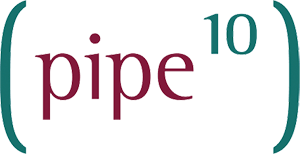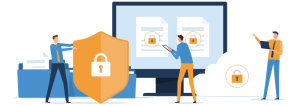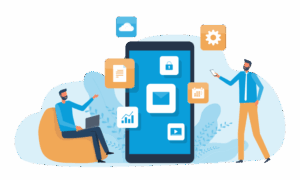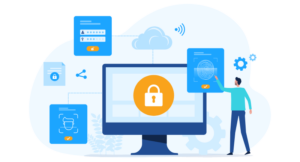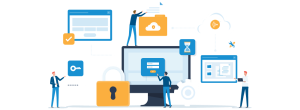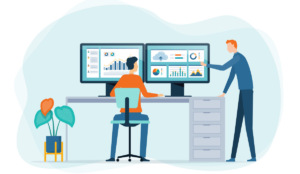Back up your critical data from the cloud to the cloud, or avoid the cloud with our VEEAM-powered solution.
Ideal For:

- Businesses of all sizes that require robust, scalable backup solutions to protect critical data across various environments.
- Organisations needing reliable DR options to ensure business continuity in any scenario.
- IT teams looking for efficient data management capabilities with seamless backup across cloud and on-premise platforms.
- Companies aiming to meet strict data protection and compliance standards across multiple geographic locations.
Key Features:
- Versatile backup options available, including cloud-to-on-premise, on-premise-to-cloud, and cloud-to-cloud.
- Advanced data protection utilising VEEAM’s reliable and secure technology to safeguard your critical information.
- Automated backups that ensure data integrity and reduce administrative overhead, making data management effortless and reliable.
- High-speed data recovery capabilities designed to minimise downtime and rapidly restore operations after an incident.
- Strong encryption standards applied to all data transfers and storage, ensuring your data remains secure against unauthorised access.
- Broad support for various cloud platforms and configurations, providing flexibility in backup solutions across different environments.
- Detailed reporting and analytics that offer valuable insights into backup efficiency and status, helping to optimise data protection strategies.
- Ransomware protection that includes the immutability of backups and infrastructure, preventing malicious alterations and loss.
Cloud Backup Pricing:
* Pricing for example, additional licensing and managed service costs may apply.
Cloud Backup Insights:
Why Resilient Infrastructure Demands Multi-Cloud Thinking
The June 12th 2025 Major Cloud Outages On June 12th 2025, a convergence of high-impact outages exposed the inherent risks of over-relying on individual cloud platforms: Cloudflare suffered a 2 hour 28...
Delivering SAFER Applications – Secure by Design
Secure Building Confidence Through Defence in Depth Cyberattacks are increasing in volume, complexity, and impact. Whether you are a fast-moving fintech or a scaling SaaS provider, your application is...
Delivering S.A.F.E.R. Fintech
S.A.F.E.R. – Secure | Available | Fast | Efficient | Recoverable A framework for digital resilience in the financial technology sector. From mass payment outages to phishing campaigns following ...
Strengthening Brand Trust in the email Inbox
In today’s digital landscape, trust is a currency especially in the inbox. With phishing attacks and email spoofing on the rise, businesses must adopt robust methods to protect their brand and reass...
Moving Legacy Banking Infrastructure into the Cloud: Challenges, Strategies, and Benefits
Over the past decade or so the banking industry has been coming under mounting pressure to modernise and remove their reliance on increasingly antiquated infrastructure. Whilst reliable it simply isn&...
Why you should use Azure Resource Locks
Safeguard critical Azure resources with Resource Locks One of Public Cloud’s greatest assets is the ability to create and destroy resources at the drop of a hat. This modern approach to infrastructu...
Balancing Public and Private Cloud: Maximising Efficiency and Security
As cloud computing evolves, organisations face the challenge of balancing flexibility with cost efficiency. While the public cloud offers scalability and rapid deployment, the private cloud presents s...
Pipe Ten is ISO 27001:2022 certified
At Pipe Ten Hosting Ltd, we have always prioritised the security and integrity of our customers’ data, having first achieved certification to ISO27001:2013 in 2018. It is with great pride that w...
Ransomware Resistant Backup
In an age where data is as more precious than gold, protecting it from ransomware attacks is critical. Pipe Ten, as a managed services and backup provider, implements robust strategies to safeguard yo...
Huge XSS vulnerabilities in Essential Addons for Elementor
Massive security implications The extremely popular WordPress plugin Essential Addons for Elementor had website owners scrambling to update after a critical Stored Cross-Site Scripting (XSS) vulnerabi...
Behind the Vault: Policies, Permissions and Precedence
Secret management software offers tools to help avoid plain text secrets and unencrypted storage of secrets. The increased adoption of DevOps principles and CI/CD plays a vital role in safeguarding co...
Simplifying SSL: Testing & Tools
This is the eighth in our series of insights which seek to explore and simplify the topic of SSL (and TLS) in the context of web application hosting. In our previous insight, we looked at Mixed Conten...
Simplifying SSL: Mixed Content Warning
This is the seventh in our series of insights which seek to explore and simplify the topic of SSL (and TLS) in the context of web application hosting. In our previous insight, we looked at Web Server ...
Simplifying SSL: Web Server Headers
This is the sixth in our series of insights which seek to explore and simplify the topic of SSL (and TLS) in the context of web application hosting. In our previous insight, we looked at TLS and Versi...
Simplifying SSL: TLS and Versions
This is the fifth in our series of insights that seek to explore and simplify the topic of SSL (and TLS) in web application hosting. In our previous insight, we looked at Certificate Authorities and T...
